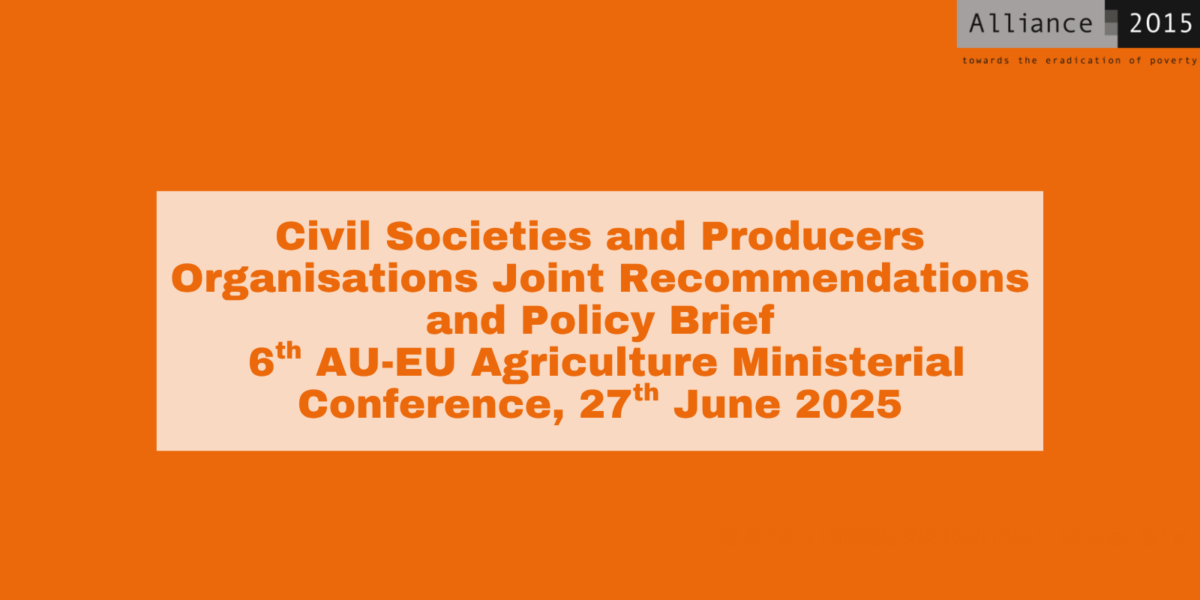Civil Society Demands Ahead of the 6th AU-EU Agriculture Ministerial Conference
As we approach the 6th African Union-European Union Agriculture Ministerial Conference taking place in Rome on 27th June, CSOs from Africa and Europe are uniting to demand a transformative shift in how our food systems are structured, governed, and supported. The conference, a crucial moment in Africa-Europe cooperation, comes at a time when the interconnected challenges of climate change, hunger, and inequality demand urgent action.
The policy brief and recommendations presented by African and European CSOs articulate a clear vision: a food system rooted in agroecology, food sovereignty, and equitable public investment. These demands emphasise the need to prioritise sustainable and inclusive approaches over extractive and industrial models of agriculture that have perpetuated social and environmental injustices.
We call for a renewed focus on family farming, territorial markets, and locally rooted food systems that empower farmers, women, youth, and Indigenous communities. Public finance must be redirected towards practices that enhance resilience, restore biodiversity, and reduce dependence on harmful chemical inputs. This includes a commitment to agroecology as a pathway to climate adaptation and ecological balance.
The recommendations also stress the importance of protecting farmer-managed seed systems, which are central to biodiversity, cultural heritage, and farmer autonomy. It is essential to resist corporate-driven policies that undermine seed sovereignty and local food security. Trade policies must align with the principle of food sovereignty, ensuring they protect local markets and provide fair conditions for smallholder farmers, rather than prioritising geopolitical interests.
Furthermore, our collective vision demands that gender equality and youth inclusion be embedded in every aspect of agricultural policy and investment. Equitable access to resources, leadership roles, and education for women and youth is not just a moral imperative but a practical necessity for achieving sustainable development.
With these priorities in mind, we urge the AU-EU partnership to address the root causes of food insecurity and displacement, focusing on peacebuilding, community resilience, and the preservation of land and water rights. Policies must move beyond symptomatic relief to tackle systemic inequities and injustices.
The policy brief is a call to action for leaders and stakeholders attending the ministerial conference. It challenges the AU and EU to rise to the occasion and demonstrate genuine commitment to building food systems that respect human rights, promote environmental stewardship, and prioritise the dignity and well-being of all communities.
We stand at a crossroads. The decisions made at this conference have the power to shape a more just and sustainable future for millions of people across Africa and Europe. Civil society will be watching closely and holding leaders accountable to these vital demands.
Read the Policy Brief and the recommendations in English and in French.


